Images of Earth have been shared repeatedly in multiple Facebook and Twitter posts which claim they were captured by the Indian lunar mission Chandrayaan-2. The claim is false; the images are all digital illustrations which have circulated online long before the mission’s launch on July 22, 2019.
Chandrayaan-2 (in English, Moon Chariot 2) is India’s second lunar exploration mission, which launched on July 22, 2019. Here is an AFP report about the launch.
Doctored Apollo 17 image
One image was published here on Twitter on July 27, 2019. The caption states: “Chandrayan 2 photo”.
It shows what appears to be an astronaut in a spacesuit next to a lunar rover, with a distant view of Earth in the background. Below is a screenshot of the image:
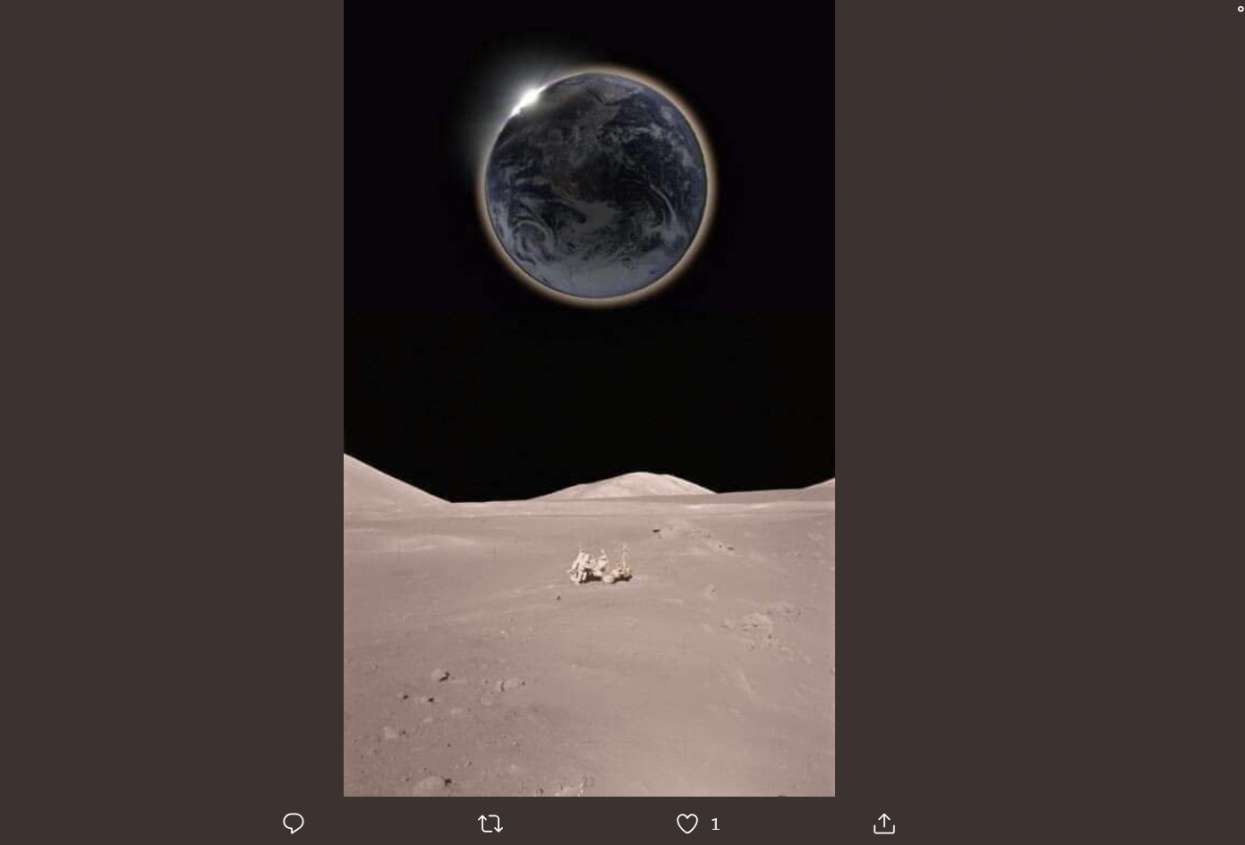
But Chandrayaan-2 is an unmanned mission.
This picture is actually a composite image based on a colourised 1972 photo of Apollo 17 astronaut Harrison Schmitt, taken by crewmate Eugene Cernan. The photo is shown below:
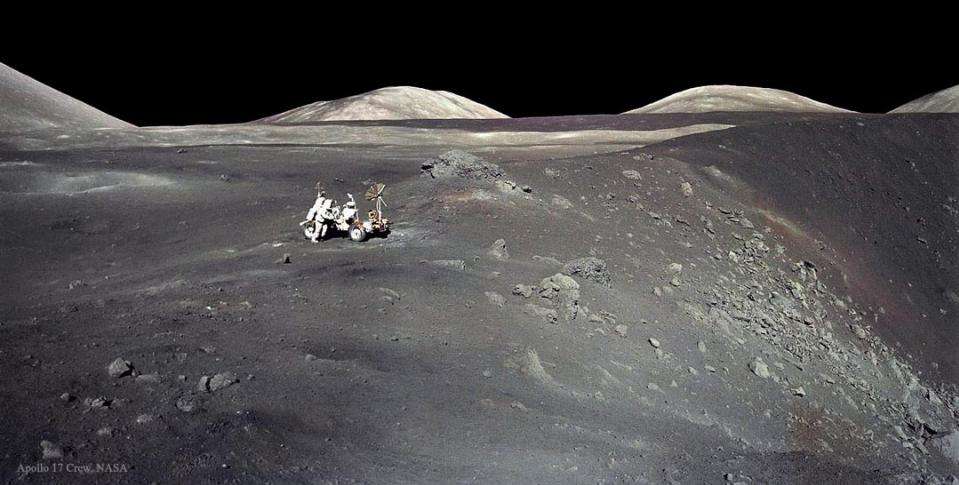
The photo appears on the NASA website here with the caption: “The image shows Schmitt on the left with the lunar rover at the edge of Shorty Crater, near the spot where geologist Schmitt discovered orange lunar soil. Forty-five years later, Cernan and Schmitt are still the last to walk on the Moon.”
Below is a side by side comparison of part of the image from the misleading Facebook post (L) and the original photo (R):
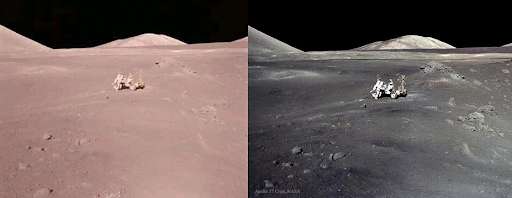
Another reverse image search found the top half of the image in the misleading Twitter post was extracted from this image created by graphic artist Hana Gartstein.
Below is a screenshot of the image on NASA’s Astronomy Picture of the Day website, dated March 2, 2007:
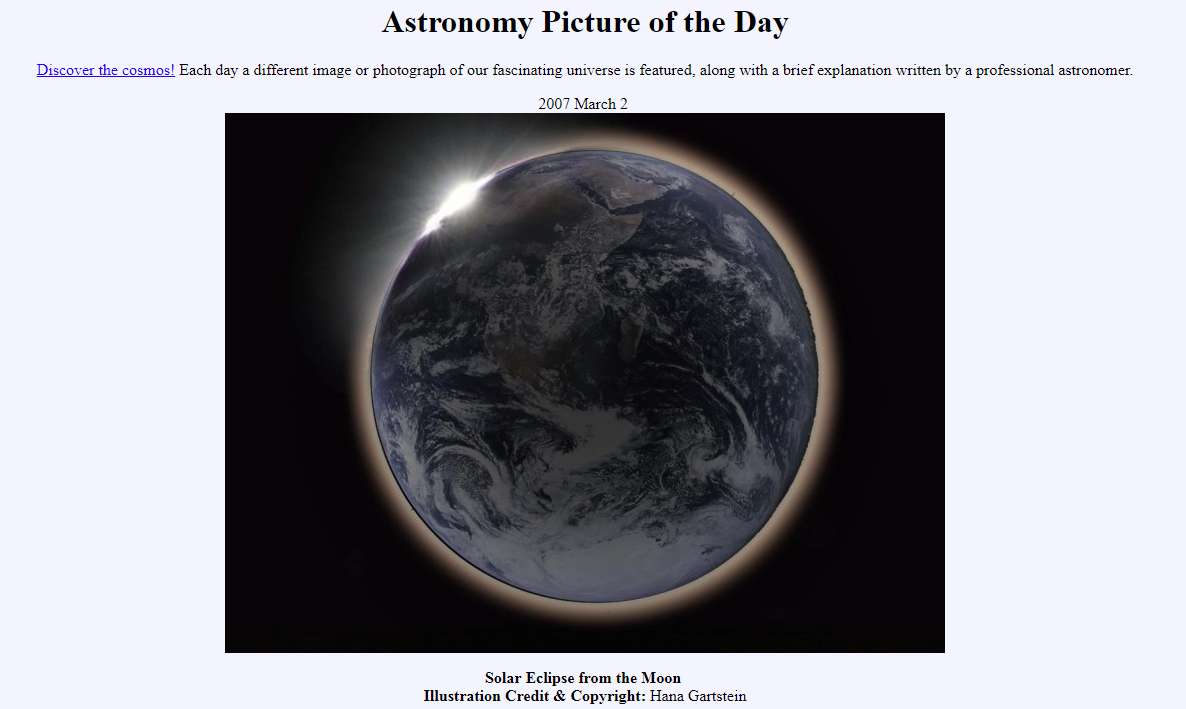
Animated NASA video
The second image was published on Facebook here on July 28, 2019.
The caption states: “The first photograph of earth, sent by Chandrayan 2 – What an eye-catching visual it is”.
Below is a screenshot of the misleading post:
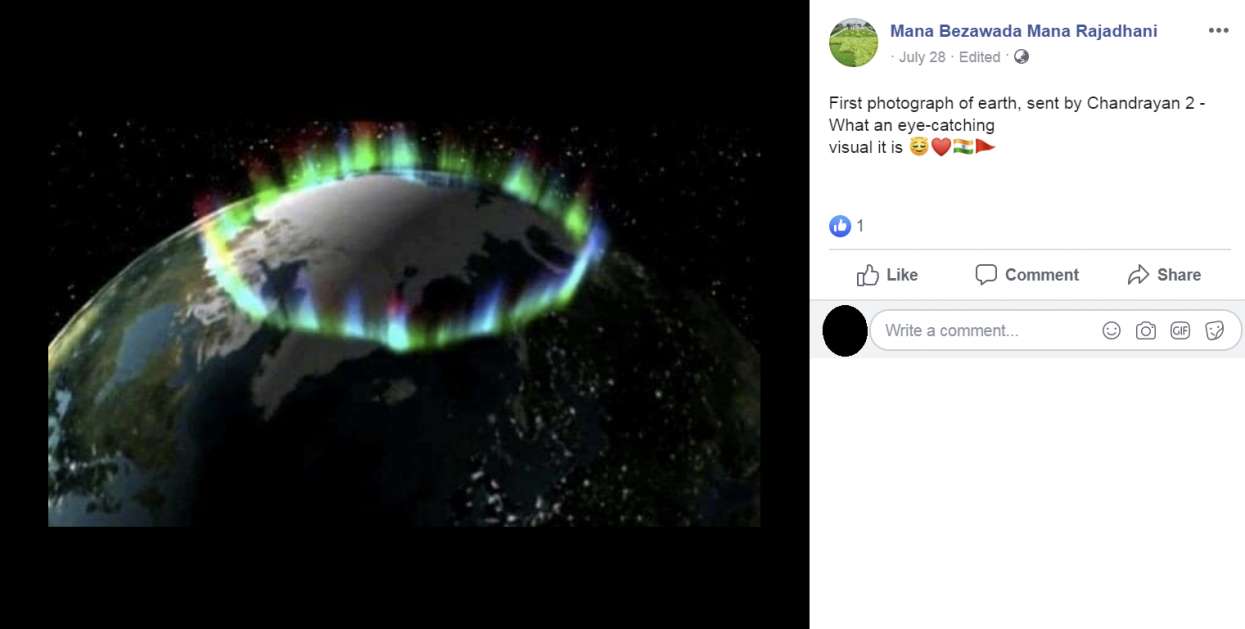
The image is, in fact, a screenshot from an animated video produced by NASA in 2005 which shows the effect of magnetic fields on visual phenomena.
It was previously circulated alongside a claim that it depicted the aurora borealis phenomenon from space. This claim was debunked by Snopes in March 2018.
Below is a screenshot comparison of the image shown in the misleading post (L) and a screenshot of the NASA video (R):

The image appears at the one-minute five-second mark of the video from NASA published on its official YouTube channel here. The video is embedded below.
Digital illustration of Earth
The third image was published in this Facebook post on July 28, 2019.
The caption states: “First photograph of earth, sent by Chandrayan 2. #photography, #earth, #chandrayan2.”
Below is a screenshot of the misleading post:
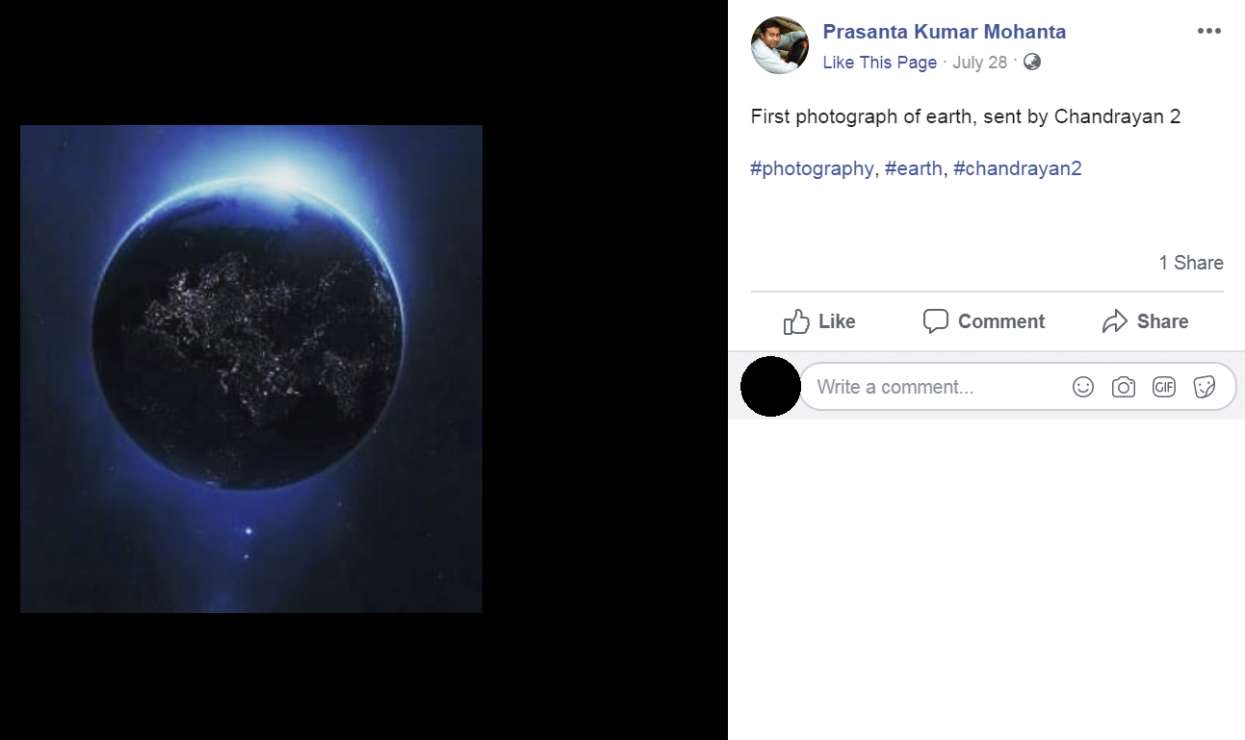
The image is, in fact, a digital picture of the Earth published in the online art community DeviantArt on December 22, 2010, and credited to Jesper Ullbing.
Below is a side-by-side comparison of the image in the misleading Facebook post (L) and the image posted on DeviantArt (R):
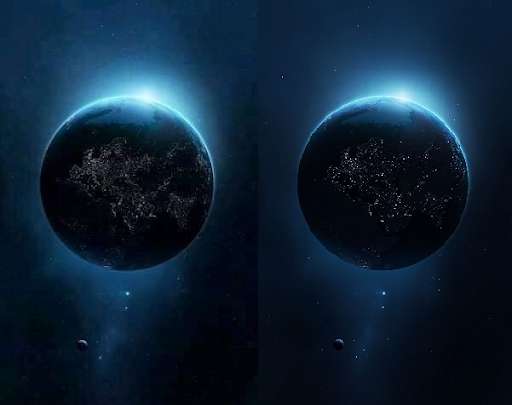
According to a Tineye search, the fourth image has been circulated online since at least September 2010. Some sites have offered the image as a free screen background for mobile phones.

Mobile phone wallpaper illustration
The fourth image was published here on Facebook on July 28, 2019.
The caption states: “Good morning. Wish you a happy Sunday.
First picture of Sunrise on earth from India’s Chandrayan-2. #suninstagram #chandrayan2.”
Below is a screenshot of the misleading post:
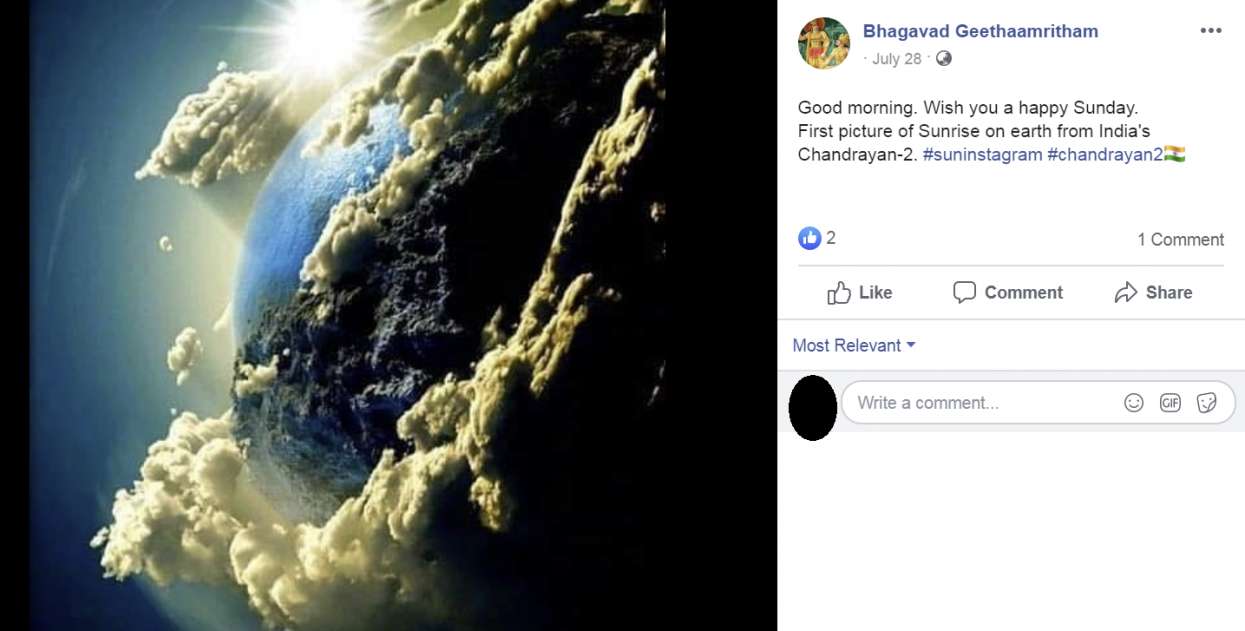
This digital illustration of the Earth has been shared online since at least 2004, when it was offered as a mobile phone wallpaper on a personal blog.
Below is a screenshot comparison of the image in the misleading Facebook post (L) and the image on the blog (R):
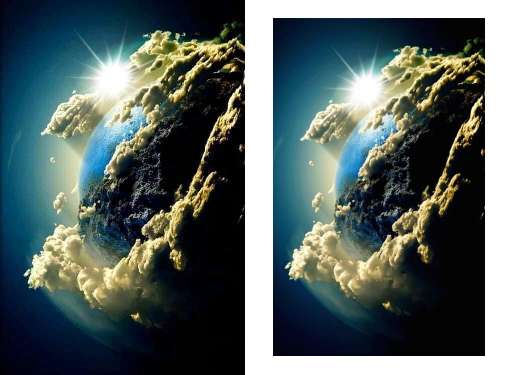
Illustrator’s digital image of Earth
The fifth image was published here on Facebook on July 27, 2019.
The caption states: “The first photograph of earth, sent by Chandrayan 2 – What an eye-catching visual it is”.
Below is a screenshot of the misleading post:
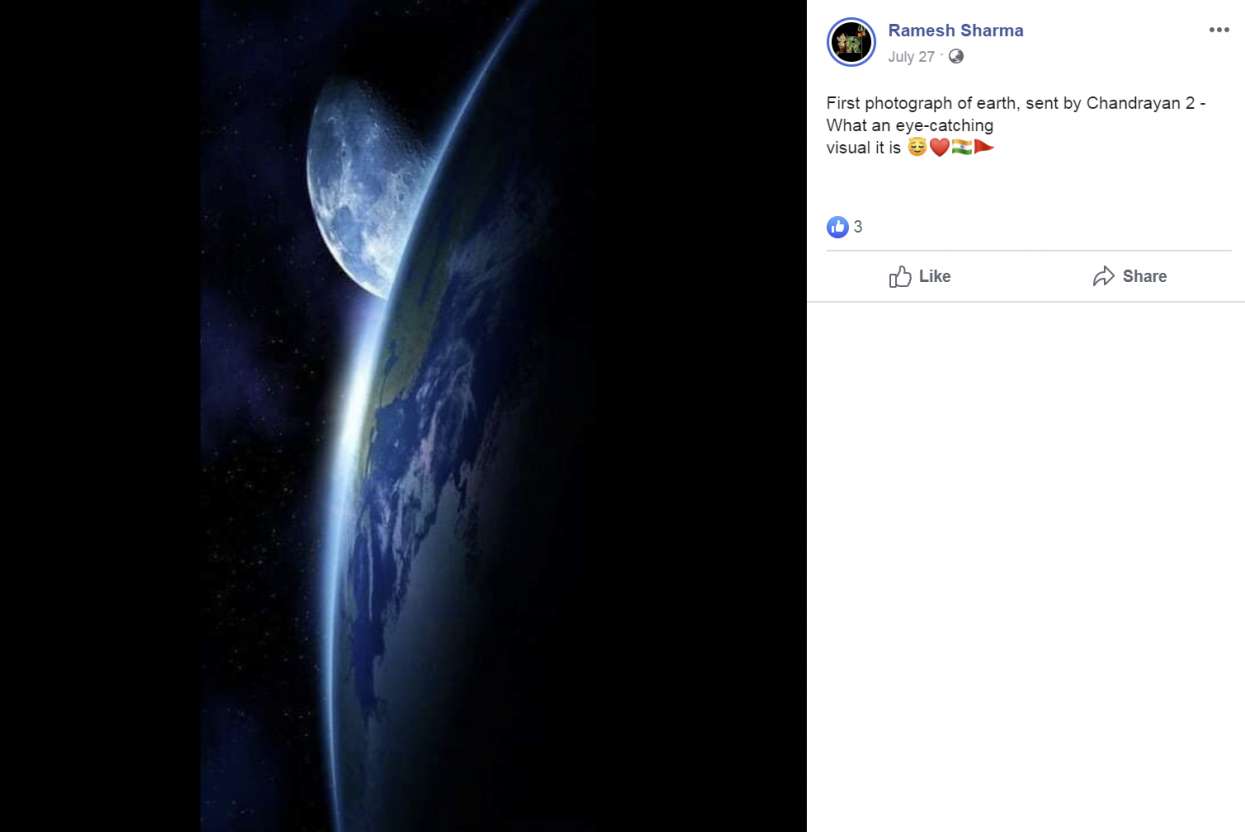
The image is, in fact, an illustration available on Shutterstock, credited to illustrator Alan Uster. It has circulated online since at least 2014, according to Tineye.
Below is a screenshot of the image on Shutterstock:
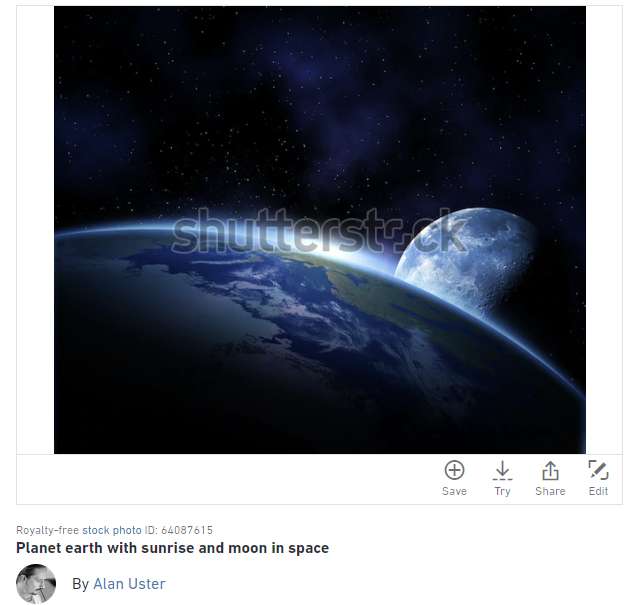
On August 4, 2019, the Indian Space Research Organisation published a number of photos actually taken by the Chandrayaan-2 mission. They can be found on Twitter here, here, here, here and here.


